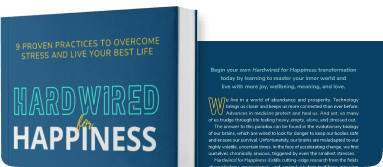From Fear to Flourishing: 4 Trust Practices That Work

We often say we’re working this hard for our teams, our companies, our families. But what’s the cost when the very pursuit of success ends up undermining the well-being of the people we care about most including ourselves?
In my conversation with Michelle Poole, the former President of Crocs, we explored the heart of human-centered leadership. It was an inspiring conversation not just because of the incredible transformation she helped lead at Crocs, but because of the courage, honesty, and wisdom she brings to how she leads.
This article is not a summary of that conversation. It’s a reflection on the deep leadership truths that emerged from it. Lessons that Michelle and I both live by, and that I hope will guide you on your own path to flourishing.
1. Earn Trust, Don’t Demand It
“Trust is your greatest asset as a leader, but it’s not something you can command. You have to earn it, one choice at a time.”

Michelle talked about a concept she learned early in her career: trust transfer. When leaders say something is possible and then follow through, trust is slowly transferred from the team to the leader. It’s not about hitting perfection. It’s about saying something is possible, making gains, and consistently doing this.
As I mentioned, and that this is backed by research, your boss matters more to your mental health than your therapist.
That’s not an exaggeration. If you’re in a toxic team culture or report to someone who erodes trust, it takes a toll. Which is why:
“You can’t build high-performing teams in a low-trust environment.” -Ashish Kothari
Action Tip:
- Celebrate the small gains. They fuel belief.
- Follow through on one small promise every week.
2. Lead with Honesty and Humanity
Michelle shared how one of her early priorities was rebuilding psychological safety. “People were afraid,” she said. “Meetings felt like walking on eggshells.” Her leadership wasn’t about bravado, it was about compassion, honesty, and being present.
I shared how I’ve seen honesty unlock energy in teams. When we acknowledge hard truths without blame, we create space for real conversation. It’s not about sugarcoating. It’s about being grounded, kind, and clear.
“Focusing on the positive doesn’t mean avoiding challenges. It means acknowledging what’s good while still tackling what’s hard.” -Ashish Kothari
This balance of realism and optimism is what primes the brain for creativity, connection, and present-moment action.
Action Tip:
- Try starting your next meeting with, “Here’s one challenge I’m facing and one thing I’m hopeful about.”
- Model vulnerability. It creates safety for others to do the same.
3. Positive Framing is a Leadership Superpower
“You have to focus on the gains. That doesn’t mean you ignore the gaps, it means you don’t let them define the story.” -Ashish Kothari
This is more than mindset. It’s neuroscience. When we focus on what’s working, we prime the brain for positivity and presence. We move out of fear and into possibility. We create momentum.
At Happiness Squad, we practice this through daily rituals; starting meetings with wins, journaling moments of joy, and celebrating progress. These aren’t soft habits. They’re performance accelerators.
“You’re priming the brain away from negativity and into the present where action happens.” -Ashish Kothari
Action Tip:
- Start every team meeting by celebrating one small win.
- Use a simple question weekly: “What gain did we make this week?”
4. Be the Leader You Wish You Had
We model the leaders that we work with so when we don’t see leaders who are, for example, empathetic, accessible, humble, and inclusive, we need to choose to act differently ourselves.
“We learn as much from the leaders we don’t want to be as from those who inspire us.” —Michelle Poole
I’ve had mentors who empowered me and others who shut me down. The difference? Those who led with humility, curiosity, and care. Their legacy lives on in how I lead.
“How we show up as leaders is shaped by the impact others had on us, good and bad.” -Ashish Kothari
Action Tip:
- Think about the best and worst leaders you’ve had. What behaviors do you want to model or never repeat?
- Ask your team: “What’s one thing I do that helps you do your best work?”
Final Reflection: Trust Starts with You
Michelle closed our conversation with something that stuck with me:
“No one will protect your values, your boundaries, or your well-being better than you.”

We can’t outsource trust-building. We can’t expect culture to fix itself. And we can’t wait for someone else to lead the change.
It starts with us.
How we show up. How we model respect. How we listen. How we follow through.
Whether you’re leading a team of 2 or 2,000, remember this:
People don’t just remember what you achieved. They remember how you made them feel.
Let’s lead with heart. Let’s lead with honesty. Let’s make trust the foundation not the afterthought.
Learn more about Michelle on Linkedin.
Listen to the podcast with Ashish and Michelle below. You can also listen on Apple Podcasts.
Access and subscribe to all of the episodes of the Flourishing Edge Podcast here.
Make Flourishing Your Competitive Edge.


